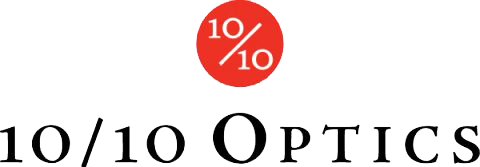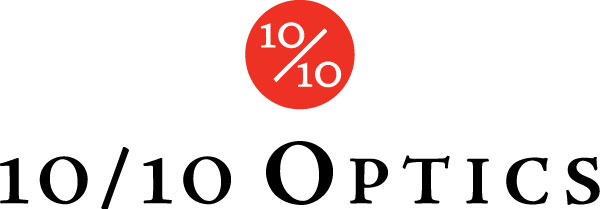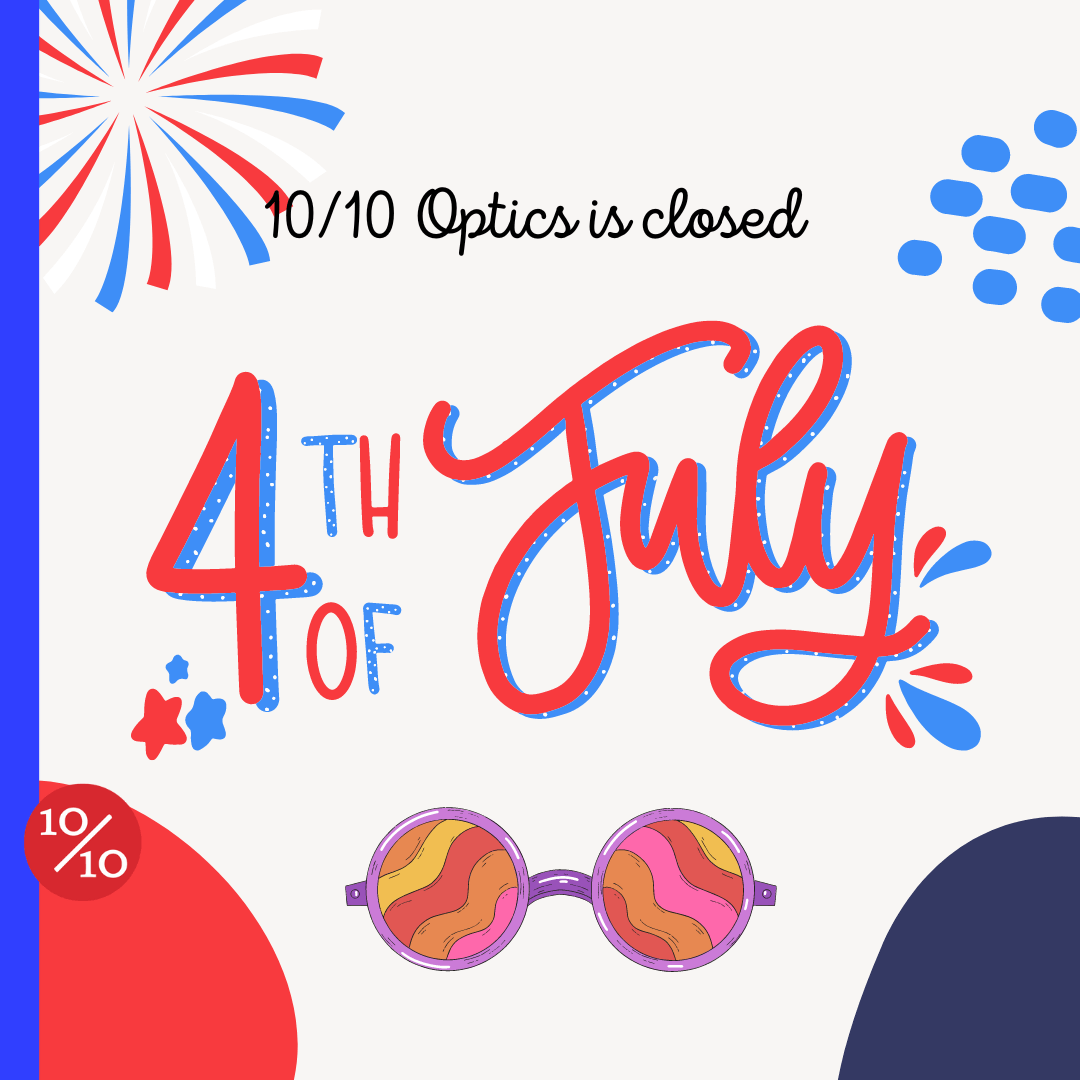No, Wearing Glasses Won’t Make Your Eyesight Worse
If you have perfect vision, congratulations! You, my friend, are in the minority. As it stands, more than 61% of the US population wears glasses, contacts, or both to correct their vision.
However, some of these individuals are hesitant to wear their corrective eyewear out of the fear that glasses will “make their eyes weaker”, or make them more dependent on their lenses than they already are.
We’re here to let you know that there’s no reason to be afraid! Glasses won’t make your vision worse. To understand why this isn’t true, we’ll lay out some important information that every glasses wearer should know.
Introductory Facts
The most common issues in eyesight are nearsightedness (myopia), farsightedness (hyperopia), and astigmatism.
Nearsighted individuals have trouble seeing things in the distance, but can see objects close to them with ease.
Farsighted individuals find it difficult to see objects up close, so reading signs as you drive may be easy, but reading a book in front of you may cause eye strain.
Astigmatism is caused by an imperfection in the cornea which prevents part of it from properly focusing light onto the retina. The result is generally blurry vision near and far. An astigmatism can exist on its own or combined with myopia or hyperopia.
These complications with vision can emerge at a young age or arise over time. Both nearsightedness and farsightedness are caused by elongations in the eyeball. When eyes get longer, incoming light has trouble focusing into the retina, which can cause near or far away images to appear blurry. As we get older our, their eyeballs eventually elongate, which is why so many people who see well at a young age develop eye trouble over time. Remember this, it will come up again.
So How Do Glasses Work?
Glasses work by simply manipulating the light entering your eye. They are an external tool that will not permanently alter your eyesight for better, or for worse, in any way. Eyeglass lenses are essentially curved pieces of glass that bend rays of light as they approach your eye. This bending of the light helps to focus the light rays on your retina (where it should be) instead of in front of it, or behind it depending on your diagnosis.
The two main types of lenses used to correct these issues are: Convex/Plus (+) for farsightedness, and Concave/Minus (-) lenses for nearsightedness. For both + and – lenses, the strength is used to indicate the amount of light being bent.
Concave lenses work by bending light that passes through glasses towards both the top and bottom of the lens. This helps correct nearsightedness by pushing the focal point backwards toward the retina. Convex lenses work by bending light as it passes through glasses towards the center of the lens, pushing the focal point forward, to correct farsightedness.
Astigmatism is addressed using a cylindrical lenses which compensates for the corneal imperfection. Because astigmatism can occur with either myopia or hyperopia, it may also be combined with concave or convex lens.
By changing the direction of light and re-centering your eye’s focal point, glasses correct vision and help to reduce strain on your eye muscles. Your eyes will automatically try to adjust to seeing things, without proper corrective lenses they will not be able to focus on anything properly. That constant losing battle can make your eyes hurt and will likely cause headaches too.
Why Do People Think Glasses Will Make Their Eyesight Worse?
It’s a common, but false, belief that poor eyesight is attributed to weaker eye muscles, it is not. Eyesight is determined by eyeball and corneal shape and glasses simply change how light reaches your eyes.
But, as with most things, common misunderstandings about how glasses affect our eyesight are caused by misguided perceptions.
For example, a Nigerian study found that 64% of surveyed students believed wearing glasses would weaken eyesight in the long run.
69% of people in Pakistan felt the same way, and even those in the medical field in Brazil were found to believe that glasses would weaken their vision.
If poor vision is cause by eyeball and corneal shape, why are so many people convinced that glasses make your vision worse over time?
This may be a result of a misconnection between correlation and causation. Remember how we mentioned that our eyes often get worse as we age? Well that happens with our without glasses, because our eyeballs get longer. But because many people find themselves reaching for their glasses more often as they age, or needing thicker lenses, or even bi-focals, they may blame the worsening dependence on wearing glasses. But this is a correlation, not a causational relationship.
Eyeballs elongate and lenses can deteriorate with age no matter what you do. If you wear your glasses, your eyes will change as you age. If you don’t wear your glasses, your eyes will still change as you get older, though you just might experience more headaches than if you had worn them.
So Will My Vision Get Worse If I Don’t Wear My Glasses?
We can’t say it enough, glasses do not change any part of your actual eyeball or train your eye to be dependent. Although there have not been many prolonged trials conducted on the effect of wearing glasses, it’s generally found that an adult wearing glasses that are too strong, too weak, or not at all, won’t change their actual eyesight in the long run. So what is the worst case scenario if you wear no eyewear or the wrong prescription?
Well for starters, you won’t see that well and you may also experience some discomfort from the blurriness. The inevitable squinting can cause headaches and won’t do your crow’s feet any favors either. But ultimately, no real damage to your eyes will occur.
Are There Any Exceptions?
Yes. Children should wear their proper prescriptions.
It’s true that not wearing glasses won’t do any real damage to an adult. But for children, not wearing the right glasses, or any glasses at all, can have a long-term negative impact on the development of their eyes.
Children’s eyes, like all parts of them, are still learning and growing. As their eyes are still growing too, if they are straining to see things their eyes will develop accordingly by elongating themselves to try to compensate for their inability to focus, resulting in worse eyesight.
If a child needs glasses to see correctly, they should wear them. Additionally, if they don’t have the correct prescription it can do harm to their vision.
For years it was thought that if you gave nearsighted children glasses with weaker (or only partially corrected) prescriptions than they really needed the elongation of their eyes could be slowed, and thus prevent their eyesight from getting worse. This proved to be wildly untrue, and significantly increased the rate at which their eyes were elongating. This was proven in a Finnish study conducted in the ‘80’s that focused on the progression of childhood myopia.
This study chose nearsighted children (at random) with varying prescriptions to wear their glasses (or not) and perform regular daily activities such as reading and writing. The elongation of their eyes was measured regularly, and after the first 3 years of the trial the children who were not habitually wearing their glasses were found to have eyes that were elongating significantly faster than those who were wearing theirs. The trial was ended early and it was recommended that all of the children wear their correct prescriptions daily.
Everyone’s eyes are a unique as they are, which is why prescriptions are so nuanced and complex. But there is no reason to fear that wearing glasses will have an adverse effect on your eyesight, nope, time and the human aging process will do that regardless. Long story short, no, wearing your glasses won’t make your eyesight worse. So wear those glasses when you need them, if you hate your glasses try a new pair of frames that add an exciting dimension to your daily look. If glasses are a problem, try contacts or even consider a procedure like orthokeratology. But give your eyes what they need to see properly, it’s a beautiful world and you deserve to see it all clearly.


